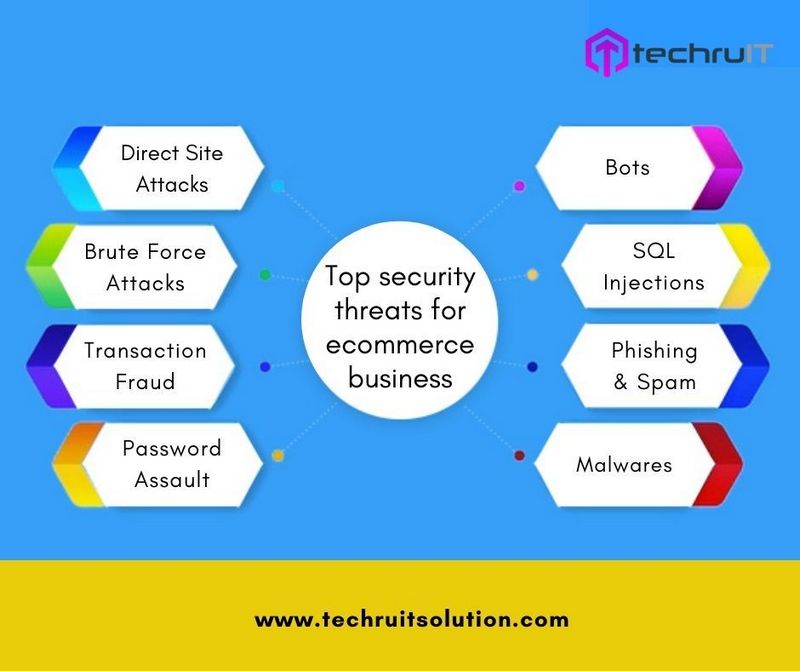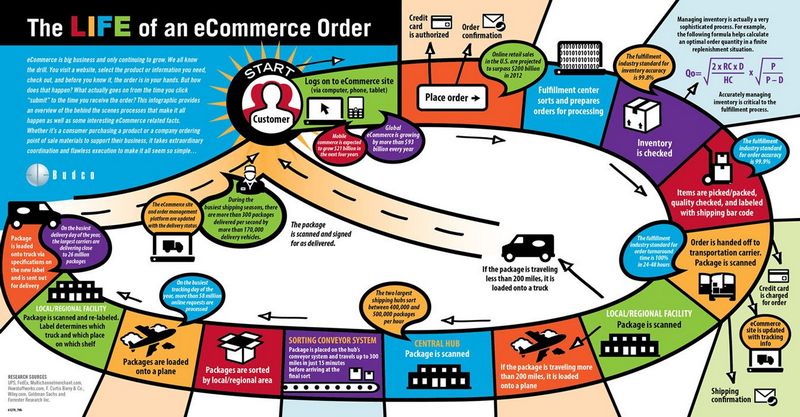- E-Commerce Security Trends: Safeguarding Your Online Business
- The Importance of E-Commerce Security
- Common E-Commerce Security Threats
- Emerging E-Commerce Security Trends
- Implementing Strong Authentication Measures
- Securing Customer Data with Encryption
- Preventing and Detecting Fraudulent Activities
- Utilizing AI and Machine Learning for Threat Detection
- Integrating Security into the Development Process
- Training Employees on E-Commerce Security Best Practices
- Implementing Multi-Factor Authentication
- Maintaining Regular Security Audits and Updates
- Protecting Against DDoS Attacks
- Monitoring and Responding to Security Incidents
- Building Customer Trust through Transparent Security Measures
- FAQ:
- What is the
E-Commerce Security Trends: Safeguarding Your Online Business
In today’s digital age, online security is more important than ever, especially for e-commerce businesses. With the increase in cyber threats and identity theft, it is crucial to take measures to ensure secure transactions and protect your customers’ sensitive information.
Fraud detection plays a key role in safeguarding your online business. Implementing advanced fraud detection systems can help identify and prevent fraudulent activities, protecting both your business and your customers from financial losses. By monitoring transactions and analyzing patterns, these systems can identify suspicious activities and take necessary actions to prevent fraud.
Data privacy is another significant aspect of online security. Your customers trust you with their personal and payment information, and it is your responsibility to protect it. Using SSL certificates and data encryption can provide an extra layer of security, making it difficult for hackers to steal sensitive data. Implementing strict access controls and regularly updating security protocols can further enhance data protection.
Hacking and data breaches are constant threats in the digital world. Cybersecurity measures such as firewalls, antivirus software, and intrusion detection systems can help prevent unauthorized access to your systems. Regular security audits and penetration testing can help identify vulnerabilities and ensure that your online business remains protected against potential cyber attacks.
Staying updated with the latest cybersecurity threats and e-commerce trends is crucial. As new threats emerge, it is essential to adapt and implement necessary security measures to stay one step ahead of hackers. By investing in cybersecurity solutions, you not only protect your online business but also gain customer trust and confidence.
The General Data Protection Regulation (GDPR) has also brought data protection into the spotlight. Complying with GDPR regulations ensures that your customers’ data is handled safely and securely. Implementing measures such as two-factor authentication and secure checkout processes can further enhance customer trust and protect against unauthorized access.
Payment security is a vital aspect of e-commerce. Adhering to Payment Card Industry Data Security Standard (PCI DSS) guidelines ensures that your customers’ payment information is handled securely. By working with reputable payment gateways and regularly monitoring transactions, you can minimize the risk of payment fraud and protect your customers’ financial data.
Ensuring the security of your online business requires a comprehensive approach that addresses various aspects of cybersecurity. By investing in the right technologies and practices, you can safeguard your online business, protect your customers’ data, and foster a secure and trustworthy online environment for e-commerce transactions.
The Importance of E-Commerce Security
Ensuring the security of your online business is crucial in today’s digital landscape. With the increasing number of cyber threats and data breaches, protecting your customers’ data privacy and payment security should be a top priority.
Secure transactions are the cornerstone of any successful e-commerce platform. Implementing robust online security measures such as two-factor authentication can help prevent unauthorized access to sensitive customer information.
Compliance with industry standards like PCI DSS and the use of SSL certificates are essential in maintaining a secure online environment. These measures ensure that customer data is encrypted during transmission and stored securely, minimizing the risk of data breaches.
The General Data Protection Regulation (GDPR) has also introduced stricter guidelines for handling customer data. Adhering to these regulations not only keeps you compliant with the law, but also builds customer trust in your business’s commitment to data protection.
With the constant evolution of e-commerce trends, it is crucial to stay updated with the latest security practices. Regularly updating your security systems and conducting vulnerability assessments helps stay one step ahead of hackers and other cybersecurity threats.
A secure checkout process and robust fraud detection mechanisms are also important components of e-commerce security. These features not only protect your customers’ financial information but also build trust and confidence in your online business.
In conclusion, investing in e-commerce security is essential for the success and longevity of your online business. By prioritizing data privacy, payment security, and implementing the necessary security measures, you can protect your customers’ information, build trust, and maintain a secure online environment.
Common E-Commerce Security Threats
As online security becomes a growing concern, e-commerce businesses are facing various hacking threats that can compromise customer trust and data privacy. It is crucial for businesses to stay aware of the latest cybersecurity threats and implement measures to ensure a secure checkout process.
Fraud detection and prevention should be a top priority for e-commerce businesses. Implementing two-factor authentication and following the guidelines set by GDPR (General Data Protection Regulation) can help protect customer data and prevent unauthorized access.
One of the major challenges faced by online businesses is the risk of a data breach. E-commerce trends show that cybercriminals are constantly evolving their techniques to gain access to sensitive information. To counter this, SSL certificates and data encryption techniques should be employed to secure transactions and protect customer data.
Compliance with PCI DSS (Payment Card Industry Data Security Standard) is essential for e-commerce businesses dealing with sensitive payment data. Adhering to these security standards ensures the safe handling and storage of customer payment information.
Overall, e-commerce security should be a top priority for online businesses. By implementing robust security measures and staying updated on the latest cybersecurity trends, businesses can safeguard their data and protect customer trust, ultimately leading to a successful and secure online business.
Emerging E-Commerce Security Trends
In today’s digital world, e-commerce security is a top priority for online businesses. With the increasing number of cybersecurity threats and data breaches, it is crucial for businesses to implement strong security measures to protect their customers’ data and gain their trust.
One of the emerging trends in e-commerce security is the adoption of GDPR (General Data Protection Regulation) compliance. GDPR sets guidelines for data privacy and protection, ensuring that businesses handle customer data responsibly. By complying with GDPR, businesses can enhance their online security and safeguard their customers’ personal information.
Secure transactions are another important aspect of e-commerce security. Implementing SSL (Secure Sockets Layer) certificates on websites encrypts data transmitted between the user’s browser and the server, making it harder for hackers to intercept sensitive information. SSL certificates provide customers with the assurance that their transactions are secure and their financial information is protected.
Cybersecurity awareness and education is also on the rise. Businesses are investing in training programs to educate their employees about cybersecurity best practices and to raise awareness about potential threats. By equipping their employees with knowledge and skills, businesses can strengthen their defense against hacking attempts and minimize the risk of data breaches.
Two-factor authentication has become an increasingly popular security measure. By requiring users to provide two forms of identification, such as a password and a unique code sent to their mobile device, businesses can add an extra layer of security to their online platforms. This helps prevent unauthorized access and ensures that only legitimate users can access sensitive information.
Another key trend in e-commerce security is the use of fraud detection systems. These systems analyze customer behavior and transaction patterns to identify suspicious activities and potential fraud. By promptly detecting and preventing fraudulent transactions, businesses can protect their customers and their own reputation.
Overall, e-commerce security is essential in building customer trust and maintaining a successful online business. By staying up-to-date with the latest security trends, implementing robust security measures, and prioritizing data privacy and protection, businesses can establish themselves as trustworthy and reliable e-commerce platforms.
Implementing Strong Authentication Measures
In today’s rapidly evolving e-commerce landscape, implementing strong authentication measures is crucial for safeguarding your online business and ensuring the security of your customer transactions. With the introduction of GDPR and the increasing concerns about data privacy and security, it is more important than ever to protect sensitive customer information.
One of the key authentication measures is data encryption. By using SSL certificates and encryption protocols, you can ensure that all data transmitted between your website and your customers is secure and protected from hackers. This not only helps to prevent cyber attacks but also builds customer trust in your online business.
Payment security is another significant aspect of strong authentication. Implementing PCI DSS (Payment Card Industry Data Security Standard) compliance ensures that your customers’ payment information is handled securely. This helps to mitigate the risk of data breaches and fraud, which could otherwise result in significant financial and reputational damage.
In addition to encryption and payment security, fraud detection measures play a crucial role in protecting your e-commerce business. By implementing advanced fraud detection tools and monitoring systems, you can identify and prevent fraudulent activities before they cause any harm. This proactive approach helps to maintain the integrity of your online transactions and protect your customers’ sensitive information.
By prioritizing e-commerce security and implementing strong authentication measures, you can safeguard your online business from cybersecurity threats and ensure data protection. This not only helps to prevent data breaches but also builds customer trust and confidence in your brand. A secure checkout process and a commitment to online security will differentiate your business from the competition and contribute to your long-term success in the e-commerce industry.
Securing Customer Data with Encryption
In today’s rapidly evolving world of cybersecurity, data protection has become a paramount concern for businesses operating in the online space. With the increasing prevalence of cyber threats and the growing importance of securing customer information, implementing robust security measures is crucial.
One of the key e-commerce trends in data protection is the use of encryption. By encrypting sensitive customer data, such as payment information or personal details, businesses can protect this information from unauthorized access. Encryption works by converting data into a code that can only be deciphered with the correct encryption key, providing an additional layer of security against potential breaches.
Implementing two-factor authentication and SSL certificates are also essential for ensuring payment security and protecting customer data. Two-factor authentication requires users to provide two forms of identification before accessing their accounts, adding an extra level of protection against unauthorized access. On the other hand, SSL certificates enable secure communication between a website and its visitors, safeguarding data as it travels between the two.
Furthermore, businesses should prioritize fraud detection and prevention mechanisms to mitigate the risk of data breaches. By utilizing advanced technologies and algorithms, such as machine learning and artificial intelligence, businesses can detect and stop potential fraudulent activities in real-time, minimizing the impact on customers and the business itself.
A secure checkout process is also crucial for maintaining data privacy and protecting customer information. Implementing secure payment gateways and adhering to industry standards like PCI DSS (Payment Card Industry Data Security Standard) ensures that customers’ payment information is securely handled and processed, instilling trust and confidence in the online shopping experience.
In conclusion, in the face of ever-evolving cybersecurity threats, securing customer data with encryption is paramount for any online business. Implementing measures such as two-factor authentication, SSL certificates, fraud detection, and secure checkout processes can help businesses ensure data privacy, mitigate the risk of data breaches, and foster customer trust in their online operations.
Preventing and Detecting Fraudulent Activities
In today’s fast-paced online business environment, it is crucial for companies to prioritize e-commerce security in order to safeguard their data and protect their customers’ sensitive information. One of the key measures to prevent fraudulent activities is the implementation of data encryption. By encrypting data, businesses can ensure that even if there is a data breach, the stolen information will be unreadable and useless to hackers.
Another important method for preventing fraud is the use of two-factor authentication. This extra layer of security requires customers to provide not only a password, but also a second piece of information, such as a code sent to their mobile device, to verify their identity. This helps to prevent unauthorized access to customer accounts and ensures data protection.
SSL certificates are another essential component of e-commerce security. These certificates establish a secure connection between the customer’s browser and the website, encrypting any data that is transmitted. This not only protects sensitive information such as credit card details, but also ensures the integrity and authenticity of the website.
Regular updates and patches should also be applied to systems and software to safeguard against cybersecurity threats and vulnerabilities. Additionally, businesses should comply with regulations such as GDPR and PCI DSS to ensure that they are following best practices for data privacy and payment security.
By implementing these e-commerce security measures, businesses can build customer trust and confidence in their online platform. With a secure checkout process and protection against fraud, customers can feel confident in making secure transactions, knowing that their data is safe from hacking and other fraudulent activities.

As cybersecurity threats continue to evolve, it is essential for businesses to stay informed about the latest e-commerce trends and adapt their security measures accordingly. By investing in fraud detection systems and keeping up with industry best practices, businesses can stay one step ahead and protect their online operations from potential threats.
Utilizing AI and Machine Learning for Threat Detection
In today’s world of e-commerce, online security is of utmost importance. As hackers become increasingly sophisticated, businesses need advanced solutions to safeguard their systems and protect customer data. That’s where AI and machine learning come in.
AI and machine learning technologies have revolutionized threat detection and prevention. By analyzing massive amounts of data in real-time, these technologies can identify patterns and anomalies that may indicate hacking attempts or cybersecurity threats. This proactive approach allows businesses to stay one step ahead of potential attacks and take immediate action to mitigate risks.
One area where AI and machine learning play a crucial role is payment security. E-commerce websites need to comply with industry standards such as PCI DSS (Payment Card Industry Data Security Standard) to ensure that customer payment information is securely handled. AI-powered fraud detection systems can analyze payment transactions in real-time, identifying suspicious activities and preventing fraudulent transactions.
Ensuring customer trust and data privacy is another vital aspect of e-commerce security. Data breaches can have severe consequences, both financially and reputationally. By utilizing AI and machine learning, businesses can proactively identify vulnerabilities in their systems and implement necessary measures to protect sensitive customer information. Compliance with regulations like GDPR (General Data Protection Regulation) is also crucial to maintaining trust and avoiding legal consequences.
Secure transactions are essential to running a successful online business. AI and machine learning can enhance security measures such as two-factor authentication, SSL certificates, and data encryption. This multi-layered approach ensures that customers’ personal and financial information is securely transmitted and stored, instilling confidence in the e-commerce platform.
When it comes to e-commerce security, staying ahead of cyber threats is a constant challenge. By utilizing AI and machine learning technologies for threat detection, businesses can minimize risks, protect customer data, and maintain a strong, secure online presence.
Integrating Security into the Development Process
In today’s digital landscape, protecting your online business is more important than ever. With the rise of e-commerce and the increasing number of cybersecurity threats, integrating security into the development process is essential for safeguarding your online business and ensuring a secure checkout.
By incorporating robust security measures, such as fraud detection systems and SSL certificates, you can protect your customers’ sensitive information and reduce the risk of data breaches. Compliance with regulations like GDPR and PCI DSS further enhances your data protection efforts, ensuring that customer data is handled securely.
One of the key aspects of integrating security into the development process is maintaining payment security. Implementing secure payment gateways and encryption protocols can prevent unauthorized access to sensitive customer information, instilling trust in your customers and encouraging secure transactions.
Furthermore, incorporating additional security features, such as two-factor authentication, adds an extra layer of protection to your online business. This authentication method requires customers to provide two forms of verification, enhancing the overall security of their accounts and minimizing the risk of hacking.
By staying informed about the latest e-commerce security trends and regularly updating your security protocols, you can ensure the long-term success of your online business. Prioritizing online security not only protects your customers’ data privacy but also establishes your business as a trusted and reliable entity in the digital marketplace.
Training Employees on E-Commerce Security Best Practices
Ensuring the security of your online business is crucial in maintaining customer trust and protecting valuable data. With the rise in cybersecurity threats and data breaches, it is essential to train your employees on e-commerce security best practices.
One of the key e-commerce trends in security is implementing two-factor authentication (2FA) for account access. By requiring an additional verification step, such as a unique code sent to a user’s mobile device, you can significantly reduce the risk of unauthorized access to sensitive information.
Data encryption is another vital aspect of e-commerce security. By encrypting all data transmitted between the customer’s browser and your website, you safeguard the confidentiality and integrity of the information, making it virtually impossible for hackers to intercept or manipulate it.
Protecting your customers’ payment information is of utmost importance in e-commerce. Utilizing SSL certificates ensures the secure transmission of data during online transactions. This encryption technology encrypts the data entered by customers, preventing unauthorized parties from intercepting and using it for fraudulent purposes.
Training employees on e-commerce security also involves educating them about the importance of data privacy and the potential risks associated with hacking and fraud. By instilling a culture of vigilance and awareness, employees can better detect and report any suspicious activities, mitigating the potential damage caused by cyber attacks.
Implementing fraud detection tools is another best practice to consider. These tools analyze transaction patterns and behavior to identify any suspicious activities, allowing you to take immediate actions to prevent fraudulent transactions and protect your customers.
Overall, investing in the training of your employees on e-commerce security best practices is essential for the success and sustainability of your online business. It helps ensure secure transactions, data protection, and customer trust, enabling you to thrive in the ever-evolving world of online security.
Implementing Multi-Factor Authentication
In the era of e-commerce, security is of paramount importance for businesses operating online. With the increasing number of cyber threats and hacking attempts, it is crucial to prioritize data protection and secure transactions. One effective way to enhance e-commerce security is by implementing multi-factor authentication.
Multi-factor authentication adds an extra layer of security by requiring users to provide more than just a password to access their accounts. It typically involves a combination of something the user knows (like a password), something they have (like a smartphone or token), or something they are (such as a fingerprint or facial recognition).
By implementing multi-factor authentication, businesses can significantly reduce the risk of unauthorized access to sensitive customer data and prevent fraudulent activities. This is especially crucial in the context of the General Data Protection Regulation (GDPR), which emphasizes the importance of data privacy and protection.
In addition to protecting against data breaches, multi-factor authentication also helps businesses comply with industry-standard security measures like the Payment Card Industry Data Security Standard (PCI DSS). This standard requires businesses to implement robust security measures to ensure the protection of customer payment information.
Overall, implementing multi-factor authentication is a proactive approach to e-commerce security that helps safeguard your online business against cybersecurity threats. By incorporating this additional layer of authentication, you can provide your customers with a secure checkout experience, protect their sensitive information, and build trust in your brand.
Maintaining Regular Security Audits and Updates
Ensuring the security of your online business is essential in today’s digital landscape. With the increasing number of cybersecurity threats, such as hacking and data breaches, it is crucial to stay one step ahead to protect your customers and your brand.
Regular security audits are an integral part of maintaining a secure online business. By conducting these audits, you can identify any vulnerabilities in your system and take immediate action to mitigate them. These audits should include testing your website for any potential weaknesses, conducting fraud detection checks, and ensuring compliance with data privacy regulations such as GDPR and PCI DSS.
Updating your security measures regularly is essential to stay ahead of cybercriminals. This includes regularly updating your e-commerce platform, software, and plugins. By keeping your systems up-to-date, you can protect against the latest cybersecurity threats and take advantage of new security features and improvements.
Another crucial aspect of maintaining online security is ensuring secure payment processing. Implementing secure checkout processes, such as using SSL certificates and data encryption, can protect sensitive customer information during transactions. Additionally, implementing two-factor authentication adds an extra layer of security, safeguarding against unauthorized access to customer accounts.
By prioritizing cybersecurity and regularly conducting security audits and updates, you can build customer trust and protect your online business from potential threats. Taking these measures not only ensures the security of customer data but also helps to maintain a strong reputation in the increasingly competitive e-commerce landscape.
Protecting Against DDoS Attacks
As the threat of cyber attacks continues to grow, it is crucial for online businesses to prioritize their cybersecurity efforts, especially when it comes to protecting against DDoS (Distributed Denial of Service) attacks. These attacks can cripple a website by overwhelming it with a massive influx of traffic, rendering it inaccessible to legitimate users.
To safeguard your online business from such attacks, it is important to implement robust measures and security practices. One key aspect is ensuring compliance with industry standards, such as PCI DSS (Payment Card Industry Data Security Standard), which sets requirements for protecting payment security and customer data.
Data encryption and SSL certificates are also essential tools in securing online transactions and protecting sensitive information. By encrypting data, you can prevent unauthorized access and ensure that customer details remain confidential while in transit.
In addition to encryption, implementing two-factor authentication can provide an extra layer of security. By requiring users to provide two forms of identification, such as a password and a unique code sent to their mobile device, you can mitigate the risk of unauthorized access.
Another important aspect of protecting against DDoS attacks is staying ahead of emerging cybersecurity threats. Regularly updating and patching software, robust network monitoring, and using a reliable web hosting service can all help detect and prevent potential attacks.
Furthermore, it is important to have effective fraud detection and prevention mechanisms in place. By monitoring suspicious activities, implementing strict authentication processes, and closely monitoring transactions, you can minimize the risk of fraudulent activities damaging your online business.
To ensure compliance with data privacy regulations like GDPR (General Data Protection Regulation), which emphasizes the importance of safeguarding customer data, implementing data protection measures is crucial. This includes implementing strong access controls, regularly conducting security audits, and providing clear data privacy policies.
By prioritizing e-commerce security and implementing measures to protect against DDoS attacks, you demonstrate your commitment to customer trust and ensure a secure checkout experience. Investing in robust cybersecurity practices not only protects your online business but also helps maintain the integrity and reputation of your brand.
Monitoring and Responding to Security Incidents
Ensuring payment security and protecting customers’ sensitive information is crucial for any online business. With secure transactions being a top priority, it is essential to stay updated with the latest e-commerce security trends and regulations, such as GDPR, to maintain data protection and customer trust.
One of the key aspects of e-commerce security is having a secure checkout process. Implementing data encryption and two-factor authentication can help prevent data breaches and unauthorized access to customer information. By using SSL certificates, sensitive data is encrypted during transmission, strengthening data privacy and reducing the risk of hacking.
Monitoring for potential cybersecurity threats is vital for any online business. This includes regularly checking for vulnerabilities and conducting audits to ensure compliance with regulations such as PCI DSS. Having fraud detection measures in place can help identify any suspicious activity and prevent potential financial losses.
In the event of a security incident, it is crucial to have an effective incident response plan in place. This involves promptly investigating and containing the breach, notifying affected parties, and taking necessary steps to mitigate the impact. Communicating transparently with customers about the incident and the actions taken to resolve the issue can help maintain customer trust and loyalty.
In conclusion, monitoring and responding to security incidents is a critical aspect of e-commerce security. By prioritizing payment security, implementing data protection measures, and staying updated with the latest trends and regulations, online businesses can reduce the risk of data breaches and safeguard their customers’ information.
Building Customer Trust through Transparent Security Measures
In today’s digital era, data protection and data privacy are crucial for any online business. With the increasing number of cyber threats and hacking attempts, customers are more concerned than ever about the security of their personal information.
Implementing SSL certificates and two-factor authentication are essential security measures to ensure the safety of both customer and business data. SSL certificates encrypt the data transmitted between the customer’s browser and the website, protecting it from unauthorized access. Two-factor authentication adds an extra layer of security by requiring users to provide two forms of identification before accessing their accounts.
Payment security is another vital aspect of building trust with customers. Secure transactions are necessary to protect sensitive payment information from being compromised. Implementing PCI DSS (Payment Card Industry Data Security Standard) compliance ensures that the business follows best practices for handling payment data and reduces the risk of a data breach.
In light of the General Data Protection Regulation (GDPR), it is critical for businesses to prioritize data privacy. GDPR enforces stricter regulations on how businesses collect, store, and process personal data. By complying with GDPR, businesses can demonstrate their commitment to protecting customer data and building trust.
Efficient fraud detection systems are also essential in safeguarding an online business. With the growing sophistication of cyber attacks, businesses need advanced tools and technologies to detect and prevent fraudulent activities. Implementing strong cybersecurity measures, such as data encryption and regular security audits, helps mitigate the risks of data breaches and unauthorized access.
By prioritizing online security and implementing transparent security measures, businesses can establish trust with their customers. Providing a secure checkout process, protecting personal information, and adhering to industry standards are crucial steps in maintaining customer trust and ensuring a successful e-commerce business.







